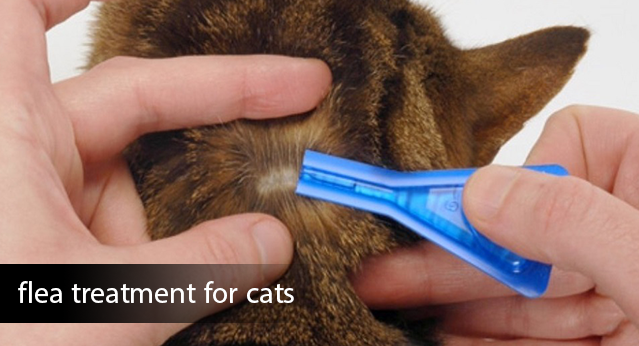Safeguarding Cats Flea Treatment Solutions
flea treatment for cats Fleas can be more than just a nuisance for your beloved feline companion; they can pose serious health risks if not addressed promptly and effectively. Fortunately, there are various flea treatment options available to ensure the well-being of your cat. From topical solutions to oral medications and preventive measures, understanding the best flea treatment for your cat is crucial.
Table of Contents
- Understanding Fleas and Their Impact on Cats
- Signs Your Cat Has Fleas
- Effective Flea Treatment Options
- Preventive Measures to Keep Fleas at Bay
- Dealing with Fleas in the Home Environment
- FAQ about Flea Treatment for Cats
Understanding Fleas and Their Impact on Cats
Fleas are small, wingless parasites that survive by feeding on the blood of animals. They thrive in warm environments and can quickly infest your cat’s fur, causing discomfort and potential health issues. The primary species of flea that affects cats is Ctenocephalides felis, commonly known as the cat flea.
Impact on Cats
The presence of fleas can lead to various problems for your cat, including:
- Itching and Irritation: Flea bites can cause severe itching, leading to constant scratching and skin irritation.
- Allergic Reactions: Some cats are allergic to flea saliva, causing allergic dermatitis, characterized by intense itching and skin inflammation.
- Anemia: In severe infestations, fleas can cause anemia, especially in kittens or elderly cats, due to the loss of blood.
Signs Your Cat Has Fleas
Identifying a flea infestation early is essential for effective treatment. Look out for these signs:
- Excessive Scratching: If your cat is constantly scratching or biting its fur, it may indicate the presence of fleas.
- Visible Fleas or Flea Dirt: Check your cat’s fur for tiny, fast-moving dark specks (flea dirt) or the fleas themselves.
- Skin Irritation or Hair Loss: Flea bites can lead to redness, bumps, or hair loss on your cat’s skin.
-
See More:All About Siamese Cat
Effective Flea Treatment Options
When it comes to treating fleas on your cat, several options are available:
Topical Treatments
Topical flea treatments are applied directly to your cat’s skin, usually between the shoulder blades or at the base of the neck. These treatments contain active ingredients that kill fleas on contact and provide lasting protection.
Oral Medications
Oral flea medications come in the form of pills or chewable tablets that your cat ingests. These medications work systemically, entering your cat’s bloodstream to kill fleas when they bite.
Flea Collars
Flea collars are worn around your cat’s neck and emit chemicals that repel or kill fleas. They offer continuous protection but should be chosen carefully to ensure they are safe and effective.
Prescription Treatments
Consulting with a veterinarian can lead to prescription treatments tailored to your cat’s specific needs. These treatments might include spot-on solutions, oral medications, or injections.
Preventive Measures to Keep Fleas at Bay
Prevention is key to avoiding flea infestations. Here are some preventive measures to consider:
- Regular Grooming: Brushing and combing your cat’s fur regularly can help you spot and remove fleas before they become a problem.
- Use of Preventive Products: Consider using monthly preventive products such as spot-on treatments or oral medications to keep fleas away.
- Clean Living Environment: Vacuum your home frequently, wash your cat’s bedding, and use flea treatments in the household as a preventive measure.
Dealing with Fleas in the Home Environment
Fleas don’t just reside on your cat; they can infest your home as well. To effectively eliminate fleas from your environment:
- Regular Cleaning: Vacuum carpets, floors, and furniture regularly, focusing on areas where your cat spends time.
- Wash Bedding: Wash your cat’s bedding and any fabric they frequently come in contact with using hot water to kill fleas and their eggs.
- Use Household Treatments: Consider using flea sprays or foggers in your home under the guidance of a professional.
See More:Powerful approaches to prevent Cat sicknesses
FAQ about Flea Treatment for Cats
Q: Can I use a flea treatment meant for dogs on my cat?
A: No, it’s crucial to use flea treatments specifically formulated for cats. Dog flea treatments may contain ingredients that are toxic to cats.
Q: How often should I apply flea treatment to my cat?
A: The frequency of application depends on the type of treatment. Follow the instructions provided with the product or consult your veterinarian for guidance.
Q: Are natural remedies effective in treating fleas on cats?
A: Some natural remedies might help repel fleas, but their effectiveness can vary. Consult your vet before using any natural products on your cat.
Q: Can fleas on my cat infest my home?
A: Yes, fleas can lay eggs in your home, leading to an infestation. It’s essential to treat both your cat and your home to eliminate fleas completely.
Q: What should I do if my cat has a severe flea infestation?
A: Seek immediate veterinary assistance for severe infestations. Your vet can recommend effective treatments to address the issue.


